
The World Bank may allocate $200 million to Ukrzaliznytsia (UZ) for the development of grain export capacity, Alexander Kamyshin, the head of the board of UZ, announced such a preliminary agreement. “We have tentatively agreed with the World Bank on $200 million in funding for our projects to develop grain export capacity,” he wrote in a telegram on Tuesday following the results of the Ukraine Recovery Conference in Lugano (Switzerland).
Earlier, on the sidelines of the conference, Kamyshin clarified to the Interfax-Ukraine agency that Ukrzaliznytsia failed to increase grain exports in June due to existing logistical restrictions.
As reported, Ukraine exported 1.41 million tons of grain crops in June 2022 compared to 1.2 million tons in May. At the same time, exports through the ports before the war of grain crops amounted to 4-5 million tons.
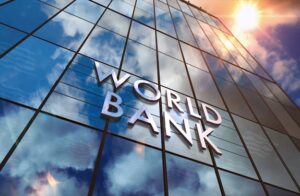
The World Bank has downgraded its inflation forecast for Ukraine to 20% by the end of 2022 from its April forecast of 15% inflation, Arup Banerji, World Bank Regional Country Director for Eastern Europe (Belarus, Moldova and Ukraine), has told Interfax-Ukraine.
“Inflationary pressures are rising. Consequently, at this stage, inflation is expected to continue rising and could reach 20% in December against 15% in our April forecasts,” Banerji said in an exclusive interview with Interfax-Ukraine.
Banerji said that the rise in inflationary pressure is particularly because of the need to cover budgetary requirements in March-May.
“International partners have acknowledged the financial challenges, thus they have committed around $20 billion in financial assistance to Ukraine. Despite these significant commitments, the timing of repayments will continue to be critical in order to meet Ukraine’s current needs,” the World Bank regional director said.
The World Bank has also maintained its forecast for a sharp contraction of 44% in Ukraine’s GDP in 2022.
“However, owing to the length of the war, when hostilities continue in several regions of Ukraine, we cannot be sure of our preliminary forecasts for a recovery in the medium term relatively,” Banerji said.
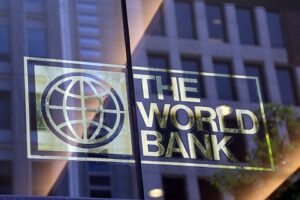
The World Bank will soon provide Ukraine with a $100 million loan to help internally displaced persons (IDPs), World Bank Regional Country Director for Eastern Europe Arup Banerji has said.
He said in an interview with Interfax-Ukraine that given the acute need for central budget financing, the World Bank is currently focusing on providing quick and immediate assistance, which, in turn, can help the population, especially the most vulnerable groups of the population. First, very soon we will allocate another $100 million to help internally displaced persons, he said.
Banerji added that the World Bank continues to provide assistance in the healthcare, infrastructure and energy sectors under existing projects.
We are also exploring opportunities for cooperation with other bilateral development partners (for example, Italy, Japan and the United States) who are very interested in attracting PEACE (Project Support to Public Expenditure to Sustainable Public Administration in Ukraine) loan and funding others types of confirmed budget expenditures, the World Bank regional director noted.
Specific items have not yet been agreed, but will certainly include additional payments to internally displaced persons and other vulnerable groups in Ukraine, Arup Banerji added.
HELP, IDPS, LOAN, WORLD BANK
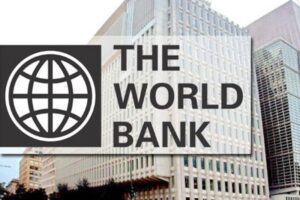
The World Bank’s Board of Executive Directors has approved additional funding for Ukraine in the amount of $1.49 billion as part of the Public Expenditure Support for Sustainable Governance in Ukraine project, the bank said on its website on Wednesday night.
“The funds from this project will be used to pay the salaries of civil servants and teachers,” the release notes.
According to him, the project received financial guarantees from the UK, the Netherlands, Lithuania and Latvia; parallel funding from Italy and expected future guarantees including Denmark.
The project is also co-financed by contributions to a new multi-donor trust fund (MDTF) from several countries, including Switzerland.
“The World Bank Group continues to take swift action to support Ukraine and its people during the war that is destroying the country,” World Bank Group President David Malpass was quoted as saying.
According to him, the World Bank is working with donor partners to mobilize the necessary financial support and using the flexibility of various existing financial instruments to help provide Ukrainians with continuous access to medical services, education and social protection.
“Sustaining these essential services and the government’s ability to provide them is important to prevent further deterioration of living conditions and poverty in Ukraine, given the suffering already caused by the war,” said Arup Banerjee, WB Regional Director for Eastern Europe. He added that maintaining effective government capacity will be the foundation of any recovery and reconstruction in the future.
The bank recalled that this new financing is part of a support package of more than $4 billion that the WB is mobilizing, and about $2 billion of these funds have already been disbursed.
Since Ukraine joined the World Bank in 1992, the bank’s commitments to the country have reached almost $16 billion in about 90 projects and programs, including the project adopted today.
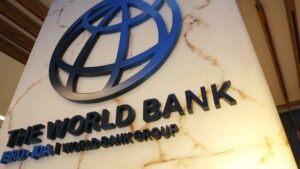
The World Bank will provide Ukraine with $4.8 billion for recovery following a roundtable talk held in Washington on April 21 along with the Ukrainian government, President of Ukraine Volodymyr Zelensky has said.
“Yesterday, during a ministerial roundtable talk, I turned to the World Bank. The result is $4.8 billion for the restoration of Ukraine,” the head of state said on Instagram.
He thanked that Ukraine “is heard and supported.”
“With such help, we will be able to quickly restore the country,” Zelensky said.
As reported, the president of Ukraine, in his speech at this roundtable talk via video link, said the country needs support in the amount of up to $7 billion monthly, while Prime Minister Denys Shmyhal said that $4 billion to $5 billion is needed to cover the budget deficit.
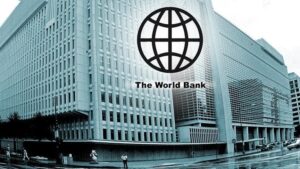
Ukraine’s GDP in 2022 will fall by 45.1%, the World Bank predicts, recalling that before the Russian invasion, it expected the Ukrainian economy to grow by 3.2% this year.
According to its Europe and Central Asia Economic Update amid the war unleashed by Russia and its consequences, in 2023 the Ukrainian economy is expected to recover by only 2.1%, which is also worse than previous expectations of 3.5%.
“Russia’s invasion of Ukraine has triggered a catastrophic humanitarian toll and severe economic contraction… The impact on poverty is also likely to be devastating, although it is hard to quantify at this stage. Based on the international poverty line of $5.50 per day, poverty is projected to increase to 19.8% in 2022, up from 1.8% in 2021, with an additional 59% of people being vulnerable to falling into poverty,” the World Bank said in the report.
According to the document, simulations using the most recent macroeconomic projection show that the share of the population with incomes below the actual subsistence minimum (the national poverty line) may reach 70% in 2022, up from 18% in 2021. In the absence of a massive post-war support package, this indicator would still be higher than 60% by 2025, the bank added.
According to the World Bank’s forecasts, private consumption in Ukraine this year will fall by 50%, while public consumption by 10%, and capital investment will drop by 57.5%. Exports of goods and services will be reduced by 80%, imports – by 70%, while the public debt to GDP ratio will increase from 50.7% to 90.7%. The forecast for the consumer price index is 15% with an increase to 19% next year.
World Bank experts expect this year a current account deficit of the balance of payments of 6.8% of GDP and its expansion to 16.8% in 2023, a fiscal deficit (non-military) – 17.5% and 26.5%, respectively.
Even for 2024, the World Bank predicts an acceleration of economic growth to only 5.8% with inflation of 8.4%
“In coming years, a major reconstruction effort is expected to push growth to over 7% by 2025 amid a slow restoration of productive and export capacity and gradual return of refugees. Still, by 2025, GDP will be a third less than its pre-war level in 2021,” the World Bank said.
The World Bank explains the absence of a strong rebound in economic growth in 2022-2023 by saying that the war has destroyed a critical amount of productive infrastructure—including rail, bridges, ports, and roads—rendering economic activity impossible in large swathes of areas. Goods trade has come to a grinding halt, as damaged transit routes prevent goods by land while the loss of access to the Black Sea cuts off half of Ukraine’s exports and 90% of its grain trade. The planting and harvest seasons have been disrupted, the World Bank said.
“The magnitude of the contraction, however, is subject to a high degree of uncertainty related to the duration and intensity of the war. Still, the repercussions are anticipated to reverberate beyond the short-term collapse in domestic demand and exports, as output is scarred by the destruction of productive capacity, damage to arable land, and smaller labor supply – especially if refugees are slow to return or choose to remain permanently outside Ukraine,” the World Bank said.
Learning losses from the pandemic are expected to be amplified by the war given the destruction of schools and disruption to schooling. The Bank, referring to UNICEF data, said that the war had displaced 4.5 million children – more than half of Ukraine’s estimated 7.5 million child population – likely disrupting education, setting back development goals, and eroding long-term potential growth prospects.
“With physical capital and vital assets destroyed and degraded, combined with scarring from the war and pandemic, the recovery will be more difficult without significant reconstruction efforts and capital flows,” the World Bank said.